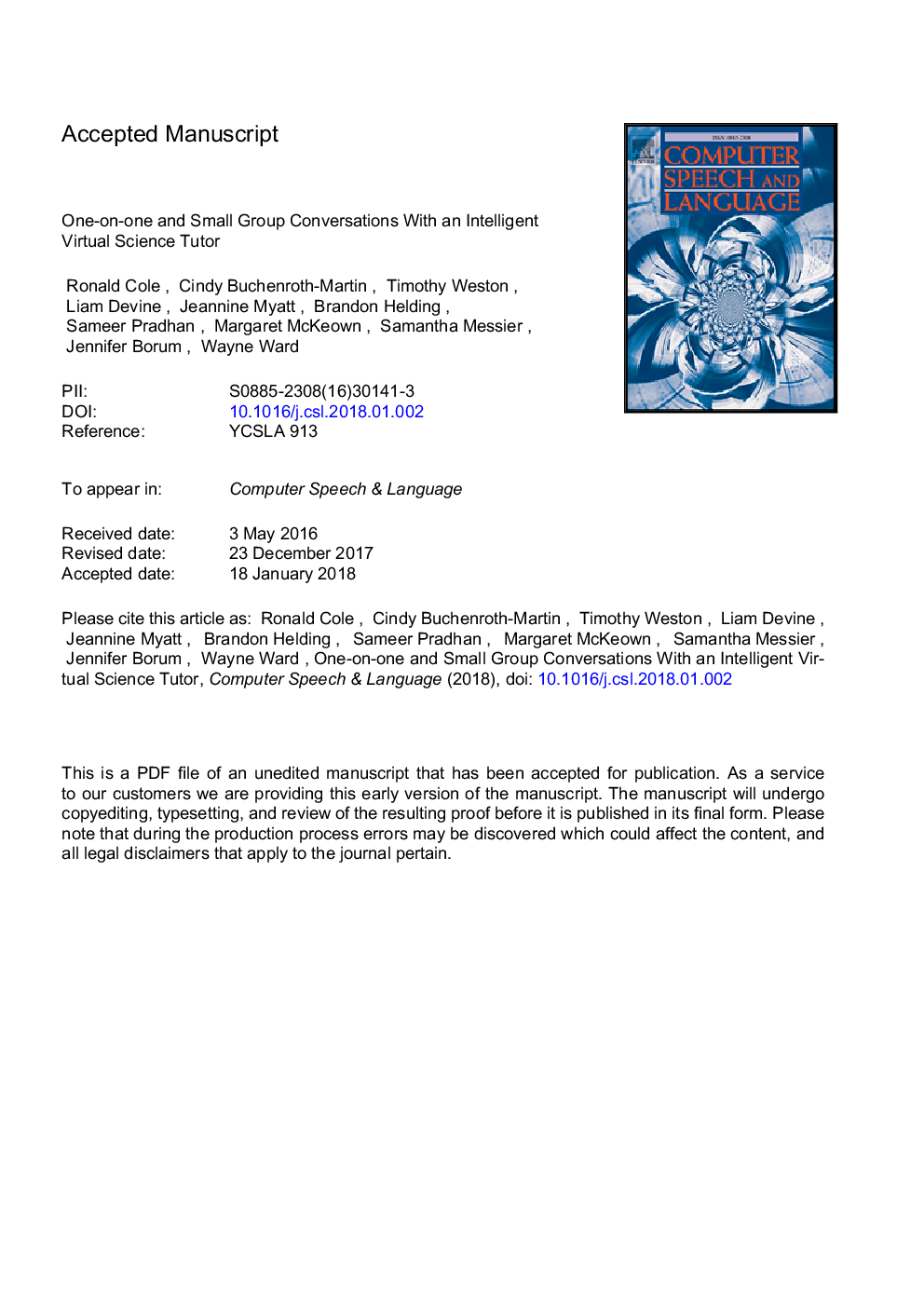ترجمه فارسی عنوان مقاله
مکالمه گروهی یک به یک و کوچک با یک معلم علمی مجازی هوشمند
عنوان انگلیسی
One-on-one and small group conversations with an intelligent virtual science tutor
| کد مقاله | سال انتشار | تعداد صفحات مقاله انگلیسی |
|---|---|---|
| 150435 | 2018 | 31 صفحه PDF |
منبع

Publisher : Elsevier - Science Direct (الزویر - ساینس دایرکت)
Journal : Computer Speech & Language, Volume 50, July 2018, Pages 157-174
ترجمه کلمات کلیدی
مجازی آموزش و پرورش، هوشمند، یادگیری، دانشجو، چند رسانه ای،
کلمات کلیدی انگلیسی
Virtual; Tutoring; Intelligent; Learning; Student; Multimedia;

